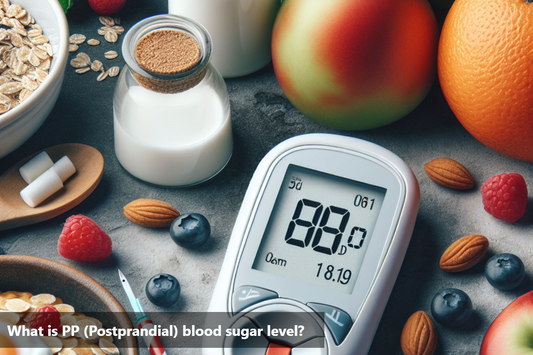Having diabetes affects how your body deals with sugar in the blood. It's crucial to eat healthily to manage diabetes. Apples are packed with nutrients and are beneficial for individuals with diabetes as they have a low glycemic index. Watch the amount of carbs you consume when introducing apples to your diet to regulate your blood sugar levels.
Nutritional Benefits of Apples
Rich in dietary fiber, particularly soluble fiber, which helps slow sugar absorption into the bloodstream and maintain stable blood sugar levels.
Good source of essential vitamins like vitamin C, contributing to overall health and boosting the immune system.
Contain antioxidants, especially in the skin, that can reduce the risk of diabetes complications by combating oxidative stress and inflammation.
Presence of polyphenols adds to the potential health benefits for managing diabetes.
Balanced natural sugars and fiber content result in a moderate impact on blood sugar levels, suitable for individuals with diabetes.
Combination of fiber, vitamins, and antioxidants supports diabetes management by contributing to overall health and blood sugar control.
Nutritional Value
for one raw, unpeeled, medium-sized apple (182 grams):
Calories |
94.6 |
Water |
156 grams |
Protein |
0.43 grams |
Carbs |
25.1 grams |
Sugar |
18.9 grams |
Fiber |
4.37 grams |
Fat |
0.3 grams |
Effect of Apples on Blood Sugar Levels
Low Glycemic Index: Apples have a relatively low glycemic index, which means they raise blood sugar levels gradually.
Dietary Fiber Content: The natural sugars in apples are accompanied by dietary fiber, which helps slow down sugar absorption and promotes stable blood sugar levels.
Regulation of Blood Glucose: The soluble fiber in apples aids in regulating blood glucose levels, contributing to better glycemic control.
Health Benefits of Apples for Individuals with Diabetes:
Potential Blood Sugar Regulation: Research suggests that incorporating apples into a diabetic diet may offer benefits due to their impact on blood sugar levels.
Vitamins and Antioxidants: The vitamins and antioxidants in apples can support overall health and potentially reduce the risk of diabetes-related complications.
The low GI of apples means they have a minimal impact on blood sugar levels, making them a suitable fruit choice for people with diabetes.
Apples are rich in dietary fiber, particularly soluble fiber (pectin), which slows down the digestion and absorption of carbohydrates, leading to a more gradual rise in blood sugar levels. This helps in maintaining steady glucose levels.
Rich in Antioxidants: Apples contain antioxidants like quercetin, chlorogenic acid, and phloridzin, which help reduce inflammation and oxidative stress. These antioxidants can improve insulin sensitivity and protect against complications associated with diabetes.
Satiety and Weight Management: The fiber in apples promotes a feeling of fullness, helping with portion control and weight management. Maintaining a healthy weight is crucial for managing diabetes effectively.
Nutrient-Dense: Apples provide essential vitamins and minerals, including vitamin C, potassium, and various phytonutrients, which support overall health and can help manage diabetes.
Hydration: Apples have a high water content, which helps with hydration and contributes to a feeling of fullness without adding excessive calories or sugar.
Recommendations for Incorporating Apples into a Diabetes-Friendly Diet:
Balanced Meal Plan: It is essential to include apples within the context of an overall balanced and individualized meal plan.
Considerations: Factors such as portion control, added sugars in apple products, and overall carbohydrate content of the diet should be taken into account.
Professional Guidance: Consulting a healthcare professional or a registered dietitian can provide personalized advice on integrating apples into a diabetes-friendly diet.
To conclude:
Apples can benefit those managing diabetes. Their rich nutritional profile, high fiber, vitamins, and antioxidants support blood sugar control and health. Apples have a moderate impact on blood sugar levels, making them a suitable fruit choice. However, portion sizes and added sugars should be monitored. Consulting a healthcare professional for personalized advice is crucial for including apples in a diabetes meal plan. It is important to have professional guidance for optimal disease management and well-being.
FAQs:
Is apple good for diabetes?
Yes, apples are a good choice for people with diabetes as they are low in glycemic index and high in fiber that can help regulate blood sugar levels.
What is the glycemic index of apples?
Apples have a low glycemic index (GI) of around 36. Foods with a low GI cause a slower rise in blood sugar levels compared to high-GI foods, making apples a good choice for people with diabetes.
How many apples can a person with diabetes eat in a day?
It is recommended for people with diabetes to consume whole fruits in moderation, including apples. Limiting intake to 1-2 small apples a day is generally safe.
Are all varieties of apples equally good for diabetes?
While all apples are generally good for diabetes, some varieties like Granny Smith apples have a lower glycemic index, making them a better choice for those managing blood sugar levels.
Can apple consumption help in reducing the risk of developing diabetes?
Apples contain antioxidants and polyphenols that may offer some protection against developing type 2 diabetes when consumed as part of a balanced diet.
Are there any specific ways to incorporate apples into a diabetic-friendly diet?
Apples can be enjoyed as a snack, added to salads, blended into smoothies, or even cooked as a healthy dessert option for those with diabetes.
This Blog post is an initiative by DiabeSmart, to provide accurate and Nutritionist / Doctor approved information related to Diabetes. DiabeSmart is India's first Food brand designed specifically for Diabetics, that has been clinically tested on Diabetics and Pre-Diabetics to deliver 55% - 70% lower Sugar spikes. DiabeSmart is part of Lo! Foods - India's leading brand for Everyday Functional Health foods.













